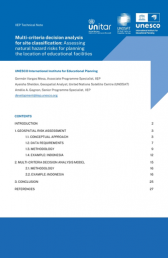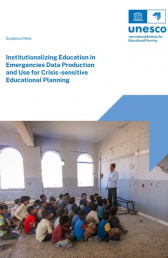
Langues
Anglais
Collections
Research papers IIEP
Année
2009
Pages
33 p.
Level
Tertiary education
Version en ligne
A propos de la publication
As a result of globalization, the level of skills demanded in the global labor market has increased and competition has grown among countries to attract the highly-skilled. The preference for a foreign degree in the labour markets in developing countries and for a domestic degree in developed countries encourages the expansion of cross-border higher education, and the mobility of institutions, students and teachers. Institutions move from developed to less developed countries, while students move from less developed to developed countries. Australia, the UK and the USA are important players in the cross-border mobility of institutions and students, and they receive billions of dollars from cross-border education. The current economic crisis may adversely affect expansion prospects of higher education in general, and that of cross-border education in particular. The initial indications are that the crisis will result in the heavy loss of employment and income levels in households and their capacity to invest in education. Many universities that have invested their money in foreign banks have already lost their investments. The student support systems, scholarships, and student loans are drying up. Public financial support may become necessary to revive the education system. This paper argues for active state intervention in higher education to finance wherever possible and to develop regulatory systems to protect national and students' interests, ensure equity, and assure quality while encouraging multiple providers in education.









